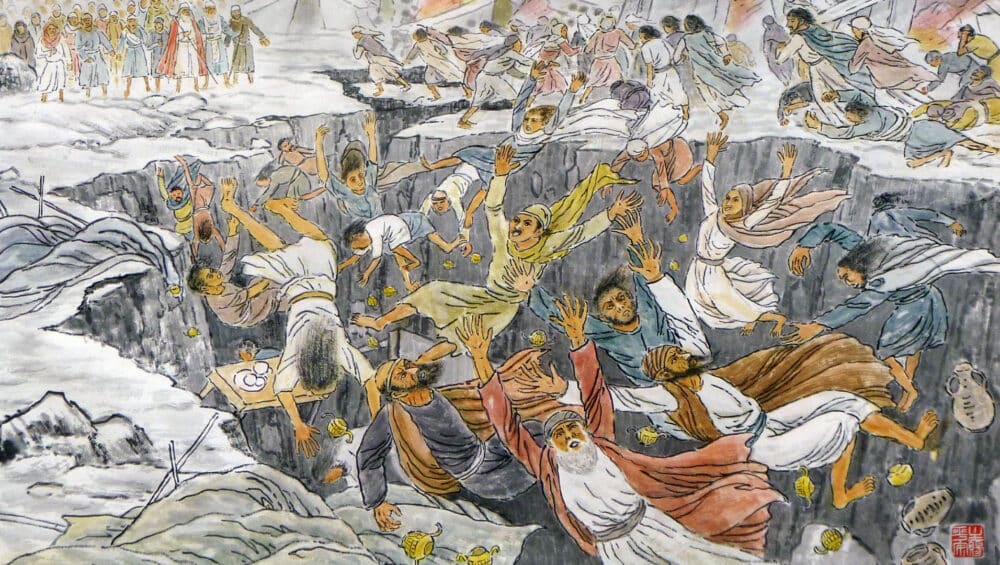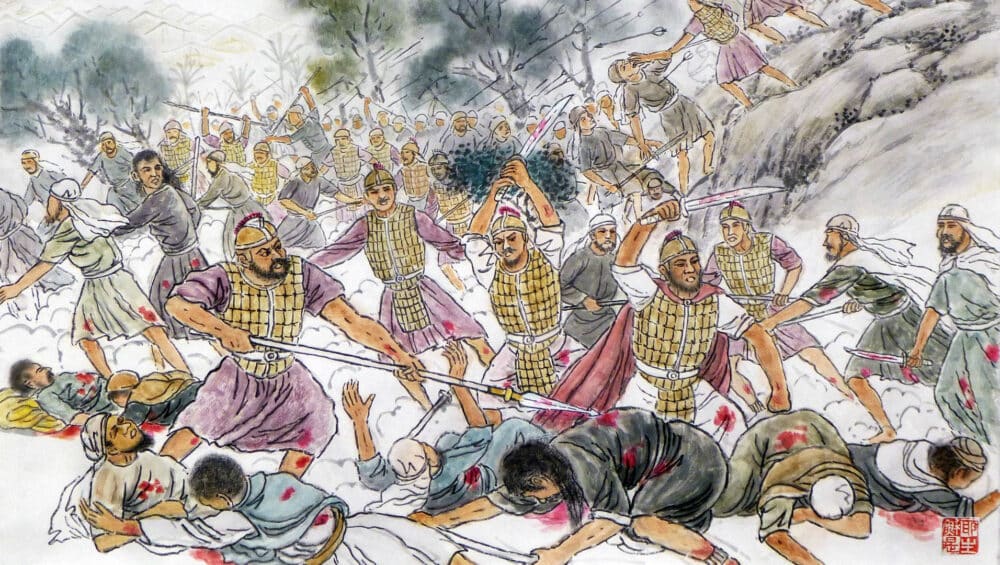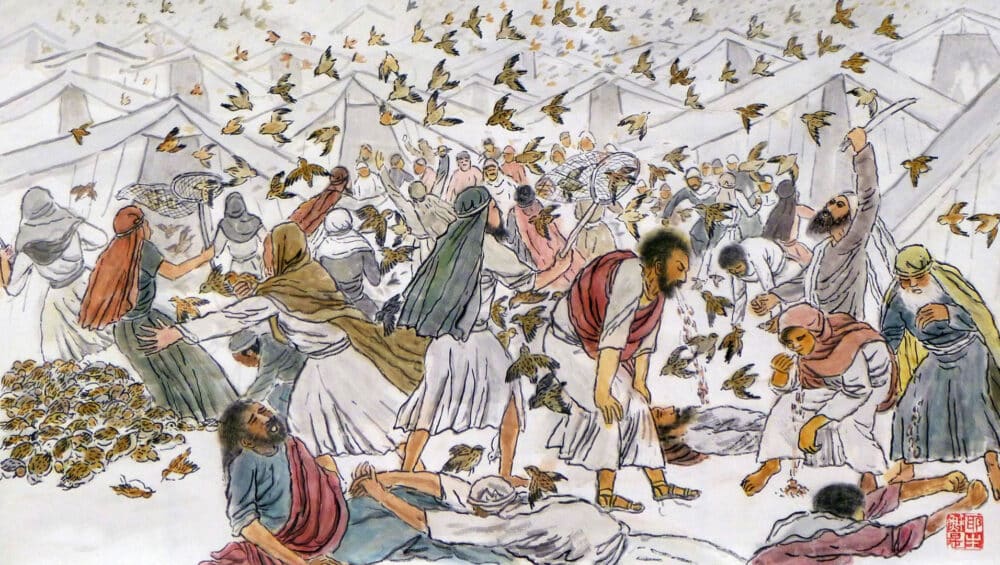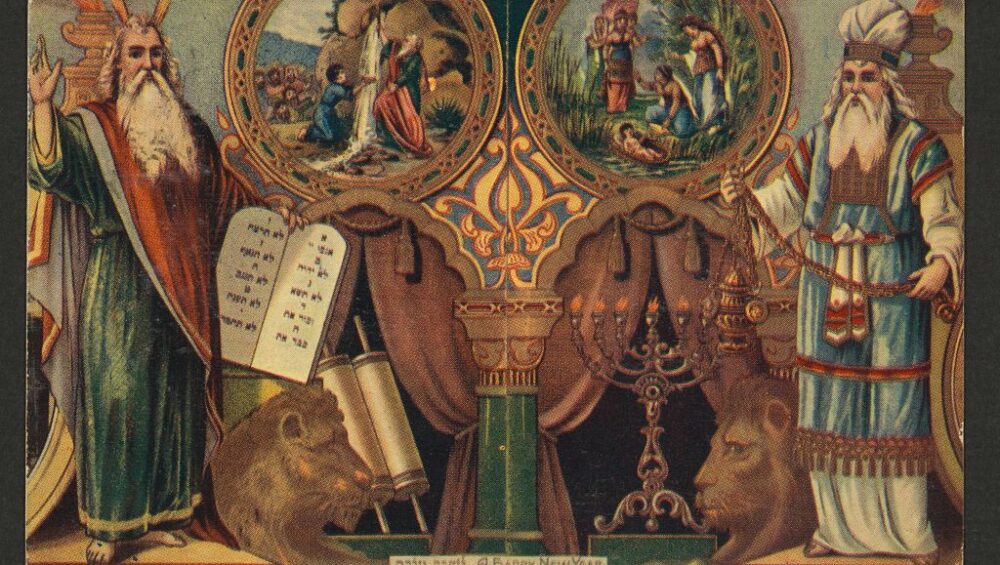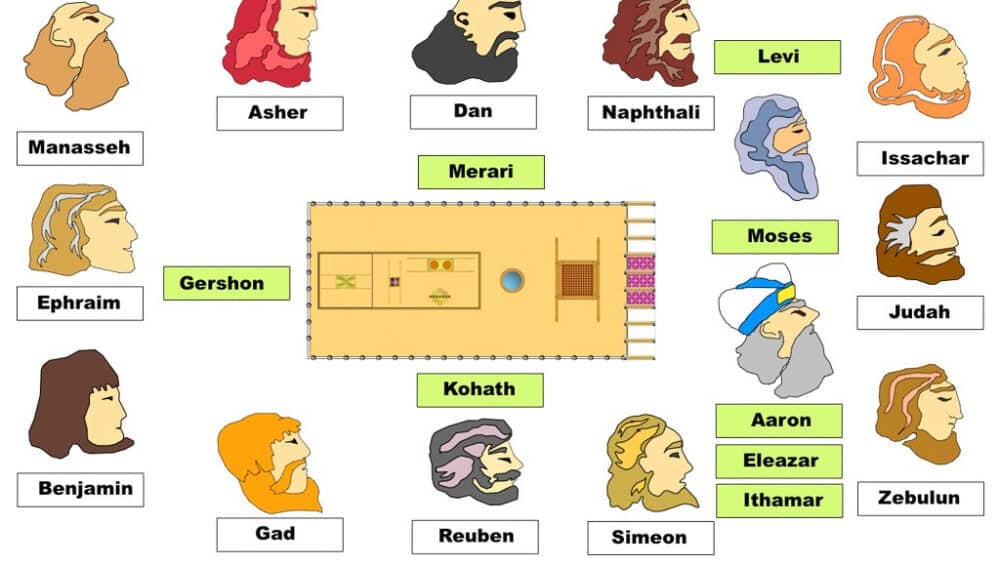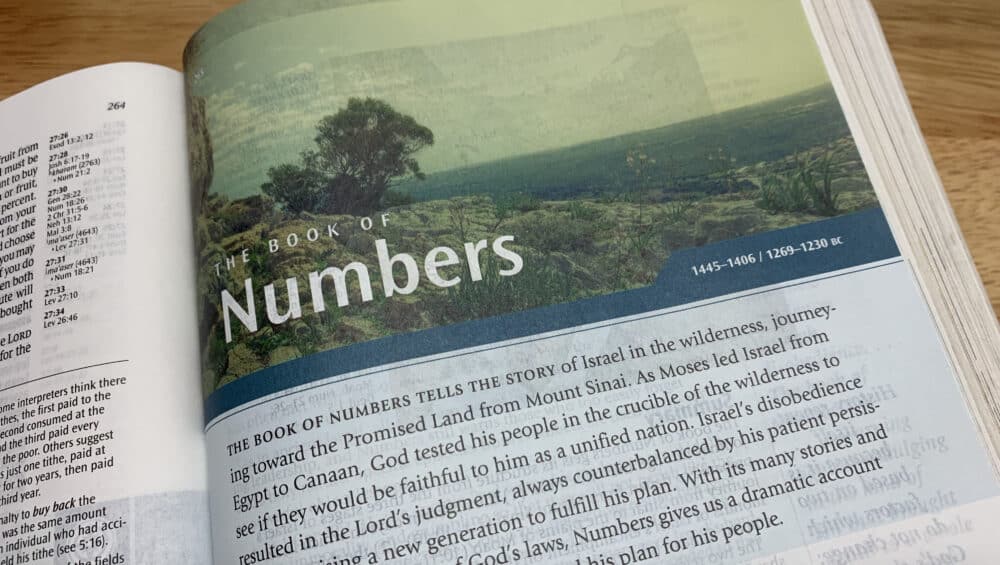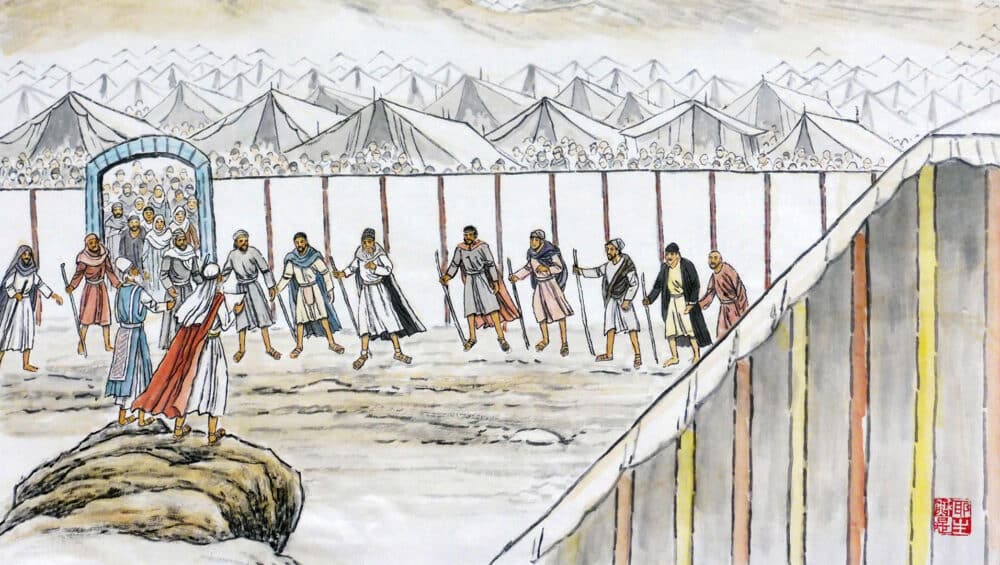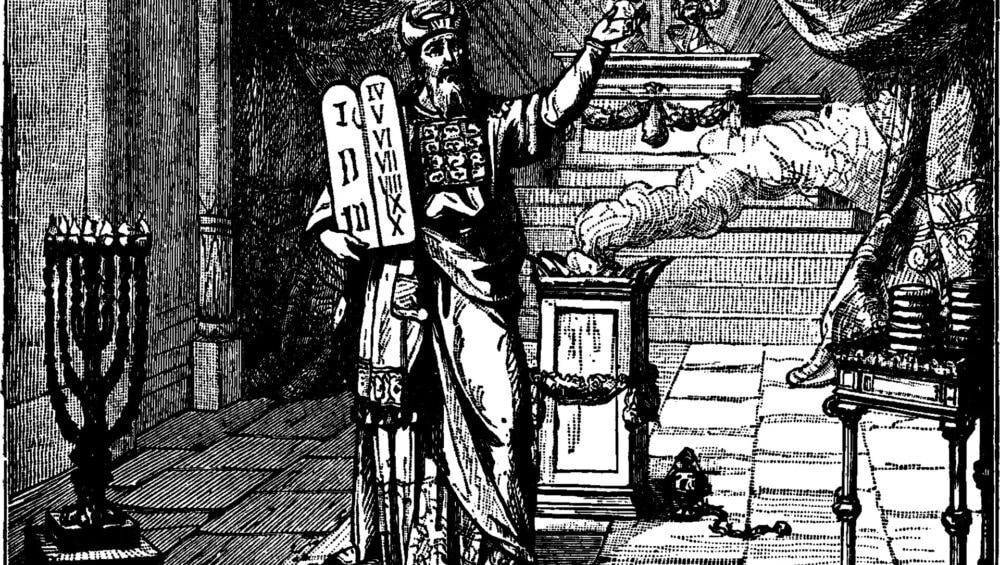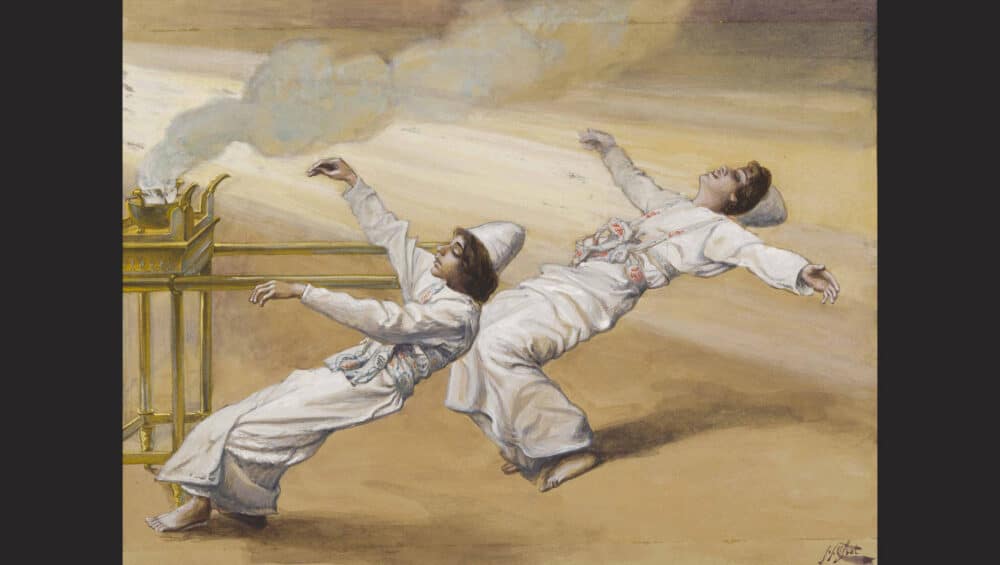Credit: Wong Chim Yuen
Welcome to Livin’ Light’s Bible-In-A-Year challenge of discovering God’s love for us and His purpose for our lives. Here is the format for this great adventure: The daily reading assignment is posted at 5 a.m. After each day’s reading, Leigh An Coplin, the blog host, shares observations and poses questions about difficult passages to Rob Fields, who studied Christian Education at Asbury Seminary and currently teaches Biology in the Orlando area. To start from the beginning, click on 365 Bible Readings and scroll down to Day 1. The reading schedule is taken from The One Year Chronological Bible NLT.
Today’s Reading
— Numbers 19-21
(1426-1407 BC) Click here for a timeline of the whole Bible.
Questions & Observations
Q. (Numbers 19:1-22): We have talked about how Israelites would be ceremonially unclean if they touched a dead person and would need purification to become clean again. We have said that the reason for this is a hygienic issue. God did not want disease to enter the Tabernacle. Is there anything more?
A. The hygiene is the underlying issue to consider when it comes to the purification, but ultimately, God is providing instructions for obedience, and part of it was not having the Tabernacle come in contact with things that were unclean because they had been in various forms of contact with the dead. God WAS interested in helping the community not suffer from disease, especially among the priests, but the reason the people were required to obey didn’t just have to do with the spread of disease, but because God was teaching them to trust and follow His commands. If God declared that contact with dead bodies (including animals, as this passage reminds us) caused people to be unclean, that was all they needed to know in order to obey. We can see considerations of community hygiene, but they were simply expected to obey because that is what God told them.
Q. (20:1): Not much is made of Miriam’s death.
A. That is true. Something that I read is that because of her proclamation of victory after crossing the Red Sea (Exodus 15), she became a figure associated with water. Thus, the next section of the story, the provision of water in the wildnerness, even with the cost to Moses and Aaron, was a way of honoring her spirit. Miriam remains an important figure to Jewish women, and one of the most well-known and commonly used Jewish names. Mary, Jesus’ earthly mother, and what seems like a dozen other women in the New Testament, bear the same name, Mary. Mary is the English version of the translation of the same name in Greek, the Hebrew name Miriam. So while the story does not seem to honor her, she remains to this day a very revered Jewish figure.
Q. (20:2-5): In a reading a couple days ago, you mentioned that because of the disrespect and disbelief that this generation of Israelites had that God intentionally made them wander in the desert for 40 years, long enough for that rebellious generation to die off. Here they are grumbling again. Did God reveal to them why they keep wandering?
A. I think the previous texts made the matter pretty clear (Numbers 14 tells them that their time in the desert matches the time in days the spies were in the Promised Land: 40 years for 40 days. But it appears they didn’t get the message, and rather then seeking to repent, they tried to force God’s hand by going into the land anyway, and continuing to complain about Moses and God’s provision. Some people learn hard.
Q. (20:6-13): I know this story, so I know that God was upset with Moses because Moses struck the rock instead of just speaking to it. But, if you don’t know this story and are just reading along, you may be confused because Moses got water for the people from the rock as God told him to. It’s the specific instructions that Moses does not follow. Do we know if this is intentional on Moses part, or just a misunderstanding? I guess we take it that Moses did it intentionally, because God knows his heart and Moses did write this book, as best to our knowledge. Maybe Moses is upset with God: His sister just died? So, now Moses and Aaron will not see Canaan, just like the rest of that generation of Israelites.
A. Moses will see the Promised Land, just not enter it. You’ll see how. I’m sure the death of his sister had something to do with his frustration, but ultimately he directly disobeys God, and joins his generation in being kept out of the Promised Land. There’s a lot of speculation about what Moses actually did, clearly it wasn’t just a misunderstanding, but rather willful intent on his part. He is clearly angry with the people, and very likely at the end of his rope in frustration with their complaining. Personally, I think that what God reacts to is Moses claiming credit for the provision of water (“must I provide it for you”), when God was the one who had made the provision. It is never a good thing when we claim personal credit for things that we know are the will and provision of God alone.
Q. (20:14-21): The descendants of Esau comprise Edom, right? Jacob and Esau parted on good terms years ago. Why would the king of Edom not let the Israelites pass through? Do we know how other nations view the Israelites at this time? They are a huge traveling group. There must have been talk.
A. Remember that Esau’s other name was Edom, related to his red hair and foolish desire for red stew (Genesis 25:30). We do not know exactly what motivated the king’s decision, but the antagonism between Jacob’s descendants and Esau’s is one of the things we noted back in Genesis was something we would follow throughout the narrative. As you mention, the group was probably quite intimidating, so perhaps there is little surprise that various nations refused to let them enter their territory.
Q. (20:29): I wonder here if mourning means observance of death or actual mourning. The reason I bring this up is that the Israelites yo-yo between respecting Moses and Aaron and rebelling against them. To mourn for 30 days must mean they respected him at this time? They also seem to be following in the next passage, Numbers 21:1-3.
A. Most ancient societies had standard operating procedures for honoring the dead, which appears to be what the text is describing. I do think that it is a powerful tribute to the respect they had for Aaron, even as they refused to listen to him. Aaron, along with Moses, certainly did a lot for the people in terms of, you know, keeping the people alive and out of God’s wrath, and I think the people knew it.
Q. (21:4-9): I must say, I would think that if I had the same thing to eat over and over again that I would complain about it. Is the lesson that the Israelites are not getting that they have made bad choices (complaining, doubting, being envious) and thus have brought this long journey in the desert on themselves? If they would have trusted in God, they may have already been enjoying the Promised Land?
A. I think you’ve put it well. Note the tone of the complaint: we hate this horrible manna, the very provision God made for His people day after day. No wonder God was angered! This isn’t, “Moses can we have quail or something else”, this is, “I hate what you are providing for me God,” That’s very dangerous territory for any of us!
Q. (21:35): So after the Israelites destroyed these cities (God was with them), they could settle in those houses instead of using their tents?
A. I honestly don’t know if they used the territory; the text doesn’t tell us. I would say it is a fair assumption that they (temporarily- they would be moving soon) used some of the buildings they conquered.
For further reading
— All about manna https://www.biblestudytools.com/bible-study/topical-studies/what-is-manna.html
— See a map of the Israelites 40-year journey in the desert. https://bible-history.com/maps/route-exodus
Shop: Follow God and you will have a great life! https://livinlight.org/product/overflow-t-shirt-2/
Tomorrow’s reading: Numbers 22-24


